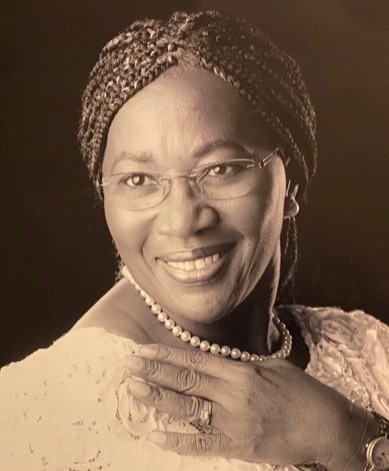5 Things
Five Reasons to Go to Church
Published
5 years agoon

1. Growth With Other Believers.
Whether you are new to the faith or have walked with God for some time, everyone can keep growing. Going to church allows you to grow with other people that may be going through the very things that you’re going through. Where two or more are gathered, Jesus assures us He is there (Matthew 18:20).
2. Relationships Through Community.
Community groups, small groups, life groups, whatever you call them, are vital. Getting together with other believers outside of your normal church service is beneficial in your everyday life. They are a mid-week reminder of all the things God is doing in your life as well as the lives of those around you. Crafting relationships with other people in a similar stage of life as you are creates strong friendships and reminds you that you’re not alone.
3. The Ability to Meet People With a Similar Mindset.
Your friends matter. They will either strengthen you in your relationship with God or discourage it. They will encourage you to be a better friend/spouse/co-worker or make that harder.No matter how much time you spend by yourself, God created humans to be together. Being alone when you need it is fine, but keeping yourself open to the idea of meeting new people can bring so many strong and new relationships.
4. Opportunities to Serve.
You were given talents by God. Some people work well with a hammer and some excel at singing on stage. No matter what talent or gift you are given, the church can benefit from it. If nothing else, start a small group! You never know when you’ll find someone else with interests or gifts similar to yours!
5. Exactly What You Need, When You Need it.
Many times, I’ve found myself sitting in a sermon that highlighted exactly what I needed to hear. I’ve also heard plenty of examples of a sermon giving someone just the encouragement that they needed to get through a challenging time in their life.
5 Things
Five Keys for Creative Fundraising in Student Ministries
Published
4 months agoon
July 1, 2024
Every student should have an opportunity to encounter Jesus beyond the walls of a church. Most students further their relationship with Christ at special events like church camps or mission trips. But the reality of these intentional events is that they cost money, and sometimes a lot of money, for our students. Money should never be the reason a student doesn’t get to experience Jesus in a new way. Fundraising can be daunting for a youth pastor, but it doesn’t have to be! We have found that there are some consistent keys to make fundraising enjoyable, successful, and a blessing to the community.
- Diversify your fundraising sources.
Sometimes it is difficult to fundraise because it feels like we are asking the same people repeatedly to donate. When planning which types of fundraisers you’re going to do each year, make sure the fundraisers draw from various sources and audiences.
- Have a fundraiser that focuses on church engagement, allowing church members to bless the youth (e.g. Dessert Auction, Work Project, Bingo Night).
- Have a fundraiser that draws from the local community. These might offer a service that people in your community need or enjoy (e.g. Car Wash, Flower Basket Sales, Corn Hole Tournament, Restaurant Coupons).
- Have a fundraiser that draws from parents. They are going to have to pay for a portion of the event cost, so you might as well offer something to them in exchange for their investment
.(e.g. Dunk Tank to dunk students or youth leaders, Date Night with babysitting at the church).
- Lastly, have a fundraiser that casts a wide net and engages high numbers of people. You never know who will want to support you or who will want to help you network (e.g. Call/Text-A-Thon).
- Make fundraisers fun for students!
The worst thing ever is when leaders or parents are doing all the work to fundraise for their students. When we make fundraisers fun, students will want to show up and do the work. Here are two of our favorites as examples:

- Wing-A-thon: We have a local chicken shack that makes incredible wings, and they allow us to come in and eat unlimited wings for an hour. Students must collect sponsors to pay them for each wing they can eat. There are “Wing Refs” that ensure students eat all the meat off the bone, there is trivia for spectators, and prizes are awarded based on most wings eaten, fewest wings eaten, spiciest basket finished, surprise competitor, etc. We even let family members eat on behalf of students to encourage everyone to participate (sponsors just need to know it is Dad eating the wings and not a 12-year-old).
- Dunk Tank Fundraiser: Every year at our summer baptism service, we spend a couple hundred bucks and rent a dunk tank. People can pay ten dollars for three chances to dunk the student of their choice, and at the end we do a bidding war for people to be able to dunk each of our staff pastors. You’d be surprised how high some of these bids can get!
- Utilize business sponsorships.
Business sponsorships are typically in larger amounts than contributions from individual donors, and they can serve multiple purposes. These funds can be used to make fundraiser events better by allowing you to purchase prizes, decor, or props. They can cover costs (like paying for everyone to eat unlimited wings so it doesn’t count against the student fundraising). They can go towards travel expenses to help drive down event costs. Any leftover funds can be offered to students who have a harder time fundraising. One perk of a church being a non–profit is we can provide businesses with tax donation forms for anything they give. Additionally, engaging these businesses fosters community partnership.
Money should never be the reason a student doesn’t get to experience Jesus in a new way. Fundraising can be daunting for a youth pastor, but it doesn’t have to be!
- Allow fundraisers to be outreach opportunities.
Fundraisers are wonderful opportunities to invite people into church environments. Encourage students to invite their friends and family to come support at fundraising events. Encourage leadership to attend fundraisers to socialize and build new relationships. Find ways to pray at the event, share testimonies, and model the gospel.
- Overpromote!
Utilize every platform you have in promoting your fundraisers. Make them a Facebook event, post them on your organization’s website, post social media stories that students and parents can share, create graphics for church announcements and printed fliers, send emails via your church database, and have fundraising nights where you sit down with your students to help them write and send out support letters. Lastly, never assume a student will fill their guardians in on what is going on. Always individually connect with parents and give them the information directly.
Fundraising does take work and intentionality, but it is so worth it. Instead of focusing on the money, keep the focus on Christ. He will provide in a perfect and timely manner. Philippians 4:19 says, “And my God will supply every need of yours according to his riches in glory in Christ Jesus” (NIV). Plan with intention, but have fun with your students, church, and community as you equip these students for an awesome opportunity to experience Jesus!
About the Author

Aaron and Christine McAndrews
Aaron and Christine McAndrews both grew up in Thurston, Oregon, and love the people there like family. They serve at Waypoint Community Church as youth pastors and volunteer with Young Life. Aaron attended Fuller Theological Seminary for his Master of Divinity, and Christine attended the University of Oregon for her Bachelor of Arts in education. Aaron serves as a US Army Chaplain for the Oregon National Guard, and Christine is an educator in a local elementary school. Both have a heart to serve the youth in their community.

By Jessica Sanford
Recently, I was asked the question “What surprises me most about people?” I responded, “It’s been my experience that most people simply want to know you care – that you were willing to take the time to truly listen.”
Notice I did not say “that you were willing to take the time to try to ‘fix them’ or to ‘solve all their problems’ or to engage in ever-so-helpful ‘telling.’” None of these things, no matter how well-intended, convey we care. (In fact, they generally have the opposite effect.)
Conveying that we care starts with a willingness to listen more and talk less. And lest you think this is something I simply made up on the fly, this idea seems to be a biblical principle as well. James instructs us: “You must all be quick to listen, slow to speak, and slow to get angry” (James 1:10, NLT). King Solomon put it like this: “For everything there is a season, a time for every activity under heaven. . . . A time to be quiet and a time to speak” (Ecclesiastes 3:1,7). It is not that we never speak (that would be a little awkward), but it is important to know when to speak and when to listen.
We complicate things when we get the order wrong.
I am convinced that connecting each of us is an innate desire to be fully heard and to know with certainty that what is in our heart matters to the person on the other side of the conversation. Imagine how many relationships could benefit from both parties adopting a listening posture!
Authentic listening is powerful; it brings life; it brings healing; it deepens intimacy and strengthens connection. And it is a gift we all can give.
Since I am a quieter and a naturally curious person, listening has always tended to be my first impulse. I am genuinely fascinated by people’s stories (and much prefer hearing others’ experiences over sharing my own). However, as I have come to learn, listening simply for “listening’s sake” is not the same thing as being an authentic, active, engaged, heart-level listener. In our conversations, it is entirely possible to hear every word being spoken but walk away having heard nothing at all. Authentic listening is a skill that must be cultivated and developed.
True, authentic listening
Is not distracted.
Is compassionate.
Is others-focused.
Does not need to be right.
Is humble and non-defensive.
Listens for understanding and not necessarily agreement.
Can lay aside self-preoccupation in order to see things from the other person’s perspective.
This kind of listening is hard and, sadly, far too uncommon. Listening on this kind of level is something I have had to learn and develop over time – and I am still learning!
This kind of listening is impossible in our own strength. We will need the resourcing of the Holy Spirit to help us with this. Perhaps you want to become a better listener as well?
Here are five ways to cultivate an authentic, active listening posture:
- Resolve to be fully present. Set aside any distractions. Put down your phone. Turn off the T.V. Let others know you are not to be disturbed – whatever it takes to be fully engaged. This simple step communicates: You matter! You are important to me. (Nothing is more off-putting than feeling like you are having to compete for someone else’s attention.) Tip: The dinner table is a great opportunity to practice distraction-free, device-free listening.
- Do not presume to know what is in the other person’s heart; instead, be a safe place for them to share their heart. Before people will let us see inside their heart, they first need to know they can trust us with it. The truth is, we do not fully know what someone else is walking through, and to pretend we do is naive at best and arrogant at worst. I saw a quote recently that struck me: “Just because someone carries it well doesn’t mean it isn’t heavy.” If I had to guess, I would say there are a fair number of people carrying some pretty heavy loads. People are more fragile than we may realize, so let’s be careful with their hearts.
- Trust the Holy Spirit to guide the conversation. I used to put a great deal of pressure on myself to have just the “right” thing to say to someone while the Holy Spirit was working behind the scenes to bring clarity and revelation to that person’s situation the entire time. I simply needed to allow the person the opportunity to “talk it through.” As I listen, I am asking the Holy Spirit to give me some powerful questions that may help the individual think through their situation on a deeper level. I am also asking Him to give me wisdom in how I might respond. How much do I say or not say? Sometimes I have said too much, other times too little. It is not a perfect science, but the more I can lean into the Holy Spirit’s leading the better able I will be to respond in a way that honors both God and the other person.
- Remain humble and resist the urge to become defensive. Easy to say – so difficult at times to do. Some conversations are just downright hard, and before we know it listening has gone out the window! (Not speaking from personal experience, of course. Ha ha.) In these challenging moments, when the person on the other side of the conversation is speaking in an aggressive tone or saying some things that we deem to be unfair, we can still honor them by taking a humble, non-defensive posture. (This is where the Holy Spirit will be crucial because in our flesh, we will want to be anything but gracious!) A great response in these tense moments is to say, “While we don’t necessarily see eye to eye on this, please help me to better understand your position.” Another good question to ask is “What do you need from me going forward?” These responses often disarm the other person – letting them know that even though you may not agree with them you still care about preserving the relationship. The less we need to be right, the greater the opportunity to hear what the other person is trying to say.
To be clear, I am not advocating that in the spirit of “listening” we allow someone to berate or denigrate us. There may be times when we simply must end the conversation, letting the other person know we will be happy to resume it once they can do so respectfully. God doesn’t expect us to be anyone’s verbal punching bag.
- Try not to make yourself part of the story. This is their story. This is especially hard in a culture that emphasizes “self” above all else. We tend to want to make everything about us, filtering our conversations though our own lenses, biases, and life experiences. By taking ourselves out the story we can more fully appreciate theirs. Compassion rises within us when we can see the situation from their point of view.
Authentic listening communicates that we care. And though not necessarily easy, everyone, with a little practice (and a lot of help from the Holy Spirit!), can be a better listener. I would say it is worth it.
About the Author

Jessica Sanford has served alongside her husband, Matt, in ministry for over two decades. She is a licensed coach with Leader Breakthru, Inc. and is passionate about making disciples and helping facilitate the spiritual transformation of those not content with the status quo. She also loves seeing women in ministry, especially other pastors’ wives, realize and step into their unique calling.

By Rev. Dyrie Francis
The human experience is punctuated by countless changes that vary in significance. Some life changes are pleasant and hold great prospects while others seem distressful from the start. The way we respond reflects our outlook on change and often determines its effect on our lives. We read or hear stories of those who have overcome extreme life circumstances and wonder how they are able to maintain perspective and rise above their circumstances to inspire others in a meaningful way.
Sister Dort was a ninety-year-old woman who used her Facebook account to connect with family and friends. What a profound impact she made, sharing encouraging Scriptures and photos, and updating her friends and family on her life transitions. Others much younger physically, resist learning how to utilize the technology available, thinking they are “too old” to learn. For them, the process of accepting that life has changed and offers exciting ways of staying in touch can seem overwhelming. Some yield to despair and loneliness in the advanced years of their lives, especially when isolated from family in an assisted living facility, nursing home, or alone at home. Perseverance and commitment to learn something new can equip those who, like Dort, accept change, bringing rich dividends of connectedness and decreasing the risk of isolation and loneliness. Not only is the learner encouraged, he or she also becomes a source of blessing to others.
Another believer who suffered severe burns from head to toe impacted me greatly. Wrapped like a mummy with only his eyes visible, this man exhibited such joy and peace. His armor of righteousness was impenetrable. His severe burns caused intense pain, yet he girded his waist with the belt of truth – the Scriptures. He shared the Gospel of salvation with every member of the healthcare team he encountered. He lifted the shield of faith with courage and confidence in the God in whom he believed, never giving up on God despite his circumstances. His secret lay in his close communion with God and his loving and transparent relationship with other believers. I wept many times for his pain and drew closer to the God who could sustain a person with such unwavering faith amid intense suffering.
I have found that the following five actions can help secure a positive outcome when we face inevitable changes. They will not only improve the course of our lives but also equip us to be encouragers and blessers of others experiencing change.
- Accept. Accept the notion that changes are inevitable. To passively resist change is counter-productive and only increases related stress. In his book Who Moved My Cheese? Dr. Spencer Johnson demonstrated that the characters Hem and Haw were totally unprepared for the disappearance of their cheese. They were angry and refused to accept that there would no longer be cheese in their maze. Why? They never considered their circumstances would change; therefore, accepting the change was a major challenge.
- Attend to. A vital step in the process of change is to attend to small changes before they become large and unmanageable. Too frequently minor changes, like red flag warnings, go unheeded and calamity follows. Take health, for example. Debilitating health issues do not usually occur suddenly. Instead, they creep up with the extra added sugar, salt, fat, and lack of physical exercise that promote a healthier lifestyle. A popular adage is “We are what we eat!”
For years I pleaded with a fellow believer to gradually decrease the number of packets of sugar she added to her cup of tea. She laughed and ignored the red flags. One day she approached me in tears. I asked what was wrong, and her answer was painful for me because she had ignored the warning signs. She had been diagnosed with full-blown diabetes. How about preparing for advanced aging since we already know God could extend our lives beyond the ability to perform self-care? Proverbs 27:23 (NKJV) instructs, “Be diligent to know the state of your flocks, and attend to your herds.”
- Adapt. Adaptability is vital to successfully navigating change. Instead of reacting negatively to an impending change, be open to consider what good may be in the change. Proverbs 3:5-7 is a directive to “Trust in the Lord with all your heart, and lean not on your own understanding; in all your ways acknowledge Him, and He shall direct your paths.”
We can miss the opportunity to grow in different areas because we resist change without looking at what is involved, considering how we can improve ourselves, or contemplating how we can improve the way we do things. James 5:13-14 provides purposeful ways of adapting to personal changes. He instructed,
Is anyone among you suffering? Let him pray. Is anyone cheerful? Let him sing psalms. Is anyone among you sick? Let him call for the elders of the church, and let them pray over him, anointing him with oil in the name of the Lord. (James 5:13-14)
- Assess/Admit. Get help to assess your needs, whether emotional, spiritual, physical, or financial, and admit areas where you have need. Pride and the spirit of independence can hinder our assessment and admission that we need assistance. Professional Christian counselors, mature spiritual guides, and professionals in social work can provide needs assessments. We are our brother’s keeper in the household of faith and the hand of God to serve the poor and needy in the community. The Apostle Paul admonished the Galatians believers: “Bear one another’s burdens, and so fulfil the law of Christ” (6:2).
- Ask/Accept. Jesus commands His followers: “Ask, and it will be given to you; seek, and you will find; knock, and it will be opened to you. For everyone who asks receives, and he who seeks finds, and to him who knocks it will be opened. Or what man is there among you who, if his son asks for bread, will give him a stone?” (Matthew 7:7). Sometimes we are unwilling to ask for or accept help because of cultural customs, past experiences, or ignorance about available resources and how to navigate the system. As members of the household of faith and disciples of our Lord Jesus Christ, may we purposefully seek out hurting brothers and sisters who are facing critical life changes. In addition, let us also look for the needs of the unchurched in our communities as a way of introducing Jesus Christ, our Lord and Savior. In serving the poor and oppressed in our community, our brothers and sisters, we demonstrate to the world that our God loves, cares for, and reigns over all the earth!
In our efforts to accept/anticipate change, attend to small changes, adapt to change, assess/admit our needs, and ask for and accept assistance, may God help us to pray:
God grant me the serenity to accept the things I cannot change; courage to change the things I can; and wisdom to know the difference.
Reinhold Niebuhr (1892-1971)
About the Author

Rev. Dyrie Francis R.N., M.S.N., M.A.C.L. lives in South Florida, where she and her husband, Karl, pioneered Living Word Open Bible Church in Cooper City, thirty years ago. The congregation is comprised of believers from 22 countries, including a minority of Caucasian Americans. The church celebrates unity in diversity and eagerly pursues the fulfillment of the Great Commission regardless of race or color. God and family are central to Dyrie’s life and ministry paradigm. She loves people and serves through teaching the Word and the ministry of prayer. Underlying her calling to service is a deep and inescapable sensitivity to God’s heart on justice and the plight of the oppressed. She serves as a bridge to many and will continue by the grace of God. Dyrie and Karl have two adult sons, Jonathan (married to Andrea) and Bryan (married to Terrone) and one granddaughter, Christine Noelle.






